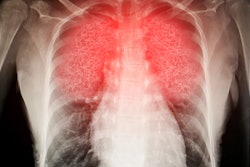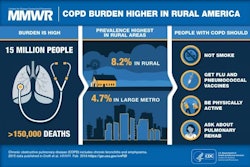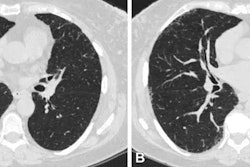
AstraZeneca shared results from its phase 2a COURSE trial at the American Thoracic Society 2024 International Conference demonstrating the efficacy of its Tezspire treatment.
The trial was a proof-of-concept study in people with moderate to very severe COPD with a broad range of blood eosinophil counts (BEC) and irrespective of emphysema, chronic bronchitis or smoking status.
The primary results showed that treatment with AstraZeneca and Amgen’s Tezspire (tezepelumab) led to a 17% reduction in the annual rate of moderate or severe COPD exacerbations compared to placebo at week 52.
Importantly, in patients with BEC ≥150 cells/µL, tezepelumab led to a nominally significant reduction of 37% in the rate of moderate or severe exacerbations compared to placebo. Studies suggest that approximately 65% of bio-eligible patients with COPD have a BEC greater than or equal to 150 cells/μL. In patients with BEC ≥300 cells/µL, tezepelumab led to a numerical reduction of 46% in the rate of moderate or severe exacerbations.
“I believe that biologics will play a critical role in the future care of COPD and trials such as the tezepelumab COURSE trial are central to understanding and shaping the treatment landscape,” said Dave Singh, professor of respiratory pharmacology at the University of Manchester and lead investigator on the trial. “The tezepelumab COURSE results are particularly important as they show activity in COPD across a broad patient population including those with baseline blood eosinophil counts greater than 150 cells/μL.”
“These proof-of-concept results from the COURSE trial are encouraging as they signal the potential efficacy of tezepelumab in a broad range of people with COPD irrespective of emphysema, chronic bronchitis and smoking status,” said Sharon Barr, executive vice president, BioPharmaceuticals R&D with AstraZeneca. “As a result of these promising data, we are actively in phase III planning for tezepelumab in COPD.”






















